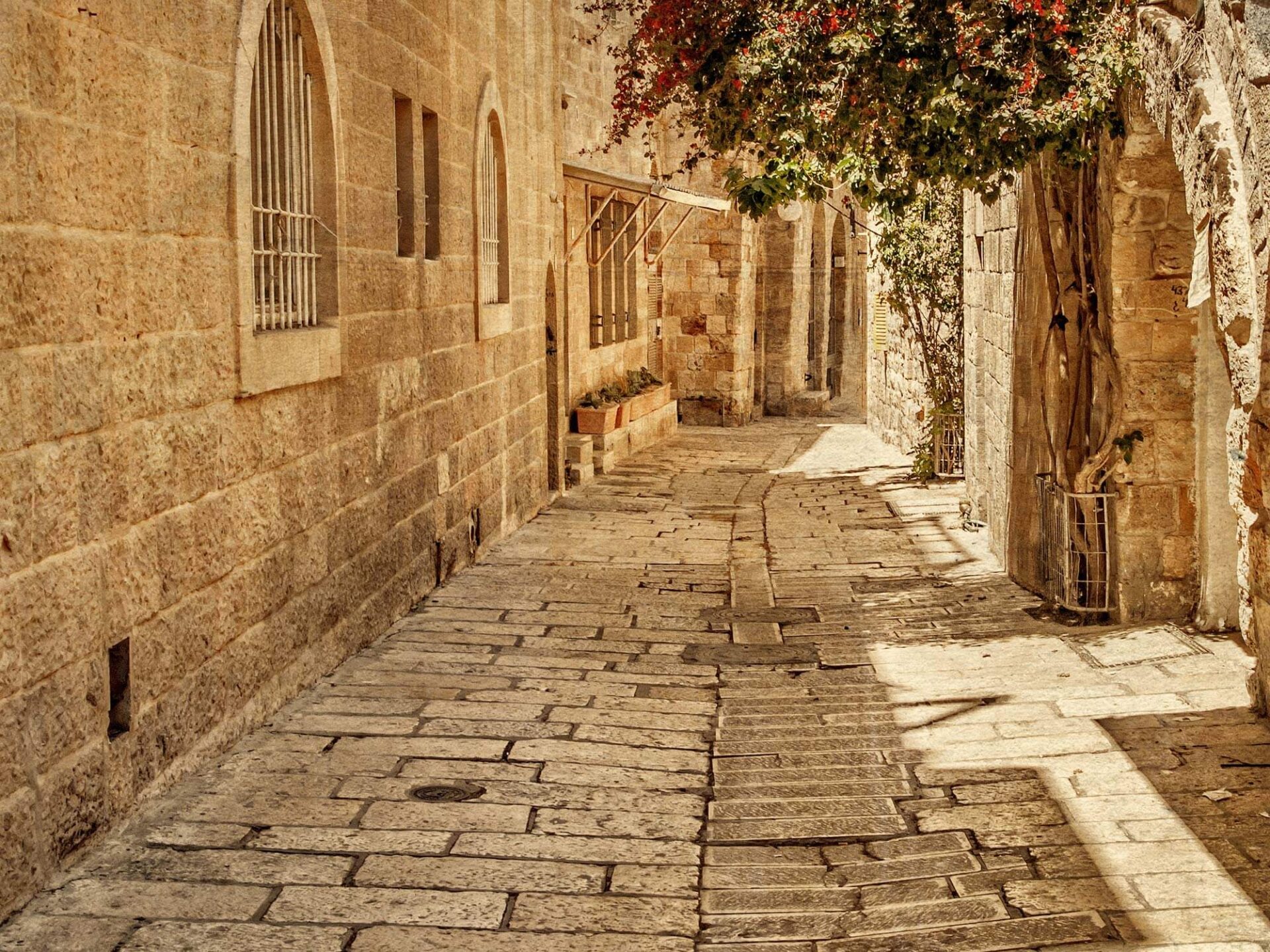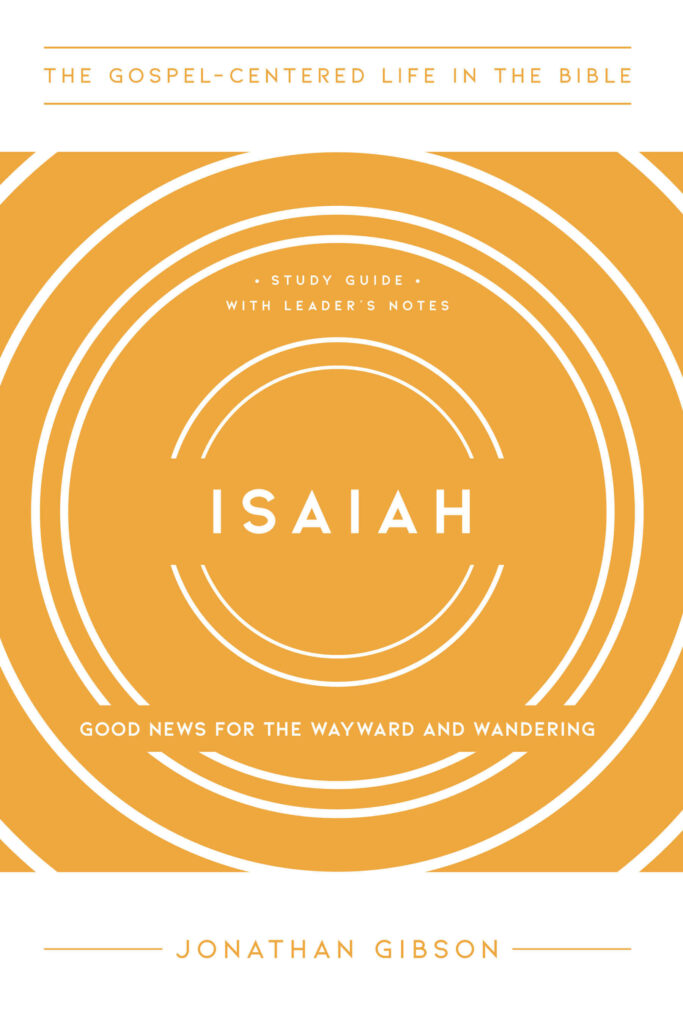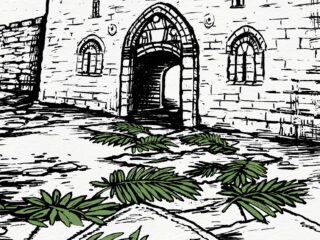The beginning of Isaiah is like the whole book in miniature. On its surface, the book is a tale of one city, Jerusalem. The first half is about Jerusalem in her rebellious stage, and the second half is about Jerusalem in her redeemed stage. But the people of Jerusalem are a picture of all God’s people. And what transforms the city is the gospel—the good news of how God saves his people, through judgment, for the transformation of the world. This means Isaiah is also about how God saves us, and about how he will one day transform the whole world.
Here in the opening section, Isaiah introduces us to six aspects of his gospel message. He does so using several pictures, which I will point out as we go. Together, they form a miniature of what the whole book of Isaiah is about: the gospel story of how God saves his people, through judgment, for the transformation of the world.
Gospel truth #1: The problem of our sin.
The first picture Isaiah gives us is of a Father with rebellious children. This is one of the greatest heartaches for any parent, isn’t it? The Lord (it’s his personal, covenant name when the Bible prints it in small capital letters) has been intimately involved in his people’s upbringing.
Yet, their response is to tell him to get out of their lives: “They have despised the Holy One of Israel” (Isaiah 1:4).
Notice that sin is first of all a problem between us and God. We spurn the God who made us, loves us, and cares for us. Notice also that sin makes us permanently sick; it becomes a lingering wound that cannot be “softened with oil” (Isaiah 1:6). This picture shows that when we sin, it’s not so easy to stop. We become stubborn. We would rather stay sick than ask for healing. We can’t save ourselves; God has to step in.
Gospel truth #2: The futility of our religious show.
When we fall into sin, we mustn’t think our religious offerings and festivals and prayers will save us. God says, “I will not listen; your hands are full of blood” (Isaiah 1:15). Religiously keeping Sunday while morally sleeping Monday through Saturday is hypocrisy. Read the list in verse 17 and ask yourself if this is at the forefront of your Christian life: ceasing from evil, doing good, seeking justice, correcting oppression, helping the helpless and needy.
Gospel truth #3: The call to repent.
When God confronts us with our sin and exposes the futility of our religious show, he then calls us to turn from our rebellious ways and walk in his righteous ways. It’s the picture of having a bath: “Wash yourselves; make yourselves clean” (Isaiah 1:16). The picture of the bath also conveys the need for continual cleansing. Salvation is only for people who have turned from their sin and who continue to turn from their sin when confronted with it.
Gospel truth #4: The choice of forgiveness or punishment.
When we lived in Cambridge, we had blackberries in our garden, and our young son Ben was good at picking them from the bramble bushes. Unfortunately, he was also good at getting blackberry juice on his clothes. So what did we do? We got out the stain remover. That’s the next picture here. The gospel comes to us with a picture of the world’s best stain remover for sin. God turns our blood-red stains of sin to snow-white purity. He offers complete forgiveness in the form of cleansing. The gospel call to repent is a choice between forgiveness or punishment, restoration or destruction, cleansing or defilement.
But there’s a tension here. Remember how God is the Holy One of Israel. How can a holy God remain just and punish sin, and at the same time forgive the same sin? That’s the dilemma Isaiah has created, and his answer is surprising: through a judgment that saves.
Gospel truth #5: The promise of salvation through judgment.
Here’s the big surprise: God’s judgment on Jerusalem is pictured as a fiery furnace from which good metal emerges. “I will turn my hand against you and will smelt away your dross. . . . Afterward you shall be called the city of righteousness, the faithful city” (Isaiah 1:25–26). The judgment will not annihilate God’s people; it will purify them. Yes, they will need to go through the judgment into exile in Babylon, but there will be survivors—a new city, transformed from faithless to faithful.
Why can this change occur? Because what happens to Jerusalem here also ends up happening to a person in Jerusalem. It happens to Jesus Christ, the representative of his people. On the cross, he is the Suffering Servant who experiences God’s judgment. Out of the grave, he is the sole (remnant) survivor who experiences God’s salvation. This is how the Holy One of Israel offers to turn our sins from crimson red to snowy white. Jesus receives our punishment in our place, and by faith we receive his righteousness. This is why “Zion shall be redeemed by justice, and those in her who repent, by righteousness” (Isaiah 1:27). Justice falls on Jesus, and so righteousness rests on us.
Gospel truth #6: The transformation of the world.
The mountain in chapter 2 so surpasses other mountains that it obviously is no longer the earthly Jerusalem but that city’s fulfillment—the heavenly Jerusalem where Jesus is King. As the word about Jesus goes out to the nations (Isaiah 2:3), people hear the good news and repent and are magnetically drawn into this kingdom. The ultimate result is universal peace, seen in a beautiful picture of swords and spears turned into ploughshares and pruning hooks. The instruments that execute a war become instruments that reap a harvest.
So let us live now with the end in mind. Let us repent of our sin that has made us sick. Let us accept the offer of forgiveness. Let us do good and seek justice, because the world is heading for universal peace and the question is whether or not we will be a part of that—part of the gospel story of God saving his people, through judgment, for the transformation of the world.
Excerpted from Isaiah: Good News for the Wayward and Wandering © 2022 by Jonathan Gibson. Used by permission of New Growth Press. May not be reproduced without prior written permission.
Isaiah: Good News for the Wayward and Wandering
Did you know that the prophet Isaiah preached the gospel? The central message of Isaiah is a simple message—God saves sinners. Through a study of Isaiah, Jonathan Gibson guides participants in savoring the basics of the gospel that we need to remember daily: we need saving.






